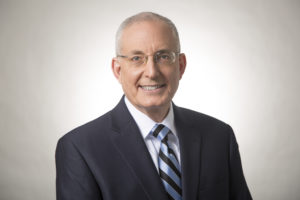
“Taxes are the single biggest factor that separates people from their retirement dreams.”
That’s a quote from today’s guest, Ed Slott, a nationally recognized IRA distribution expert, CPA, and bestselling author.
If you’re like most members of the Financial Independence Retire Early (FIRE) community, you understand the massive tax challenges inherent in retirement planning. Strategies such as the mega-backdoor Roth are popular because the FIRE community loves to optimize for taxes.
Ed does, too.
His book, The New Retirement Savings Time Bomb, is about how we can diversify and manage our tax risk so that we can achieve our financial independence and early retirement dreams.
So … what should we do?
Ed is a big proponent of Roth accounts because they’re an easy, widely-available solution. His Traditional IRA has a balance of $0.
He advises that younger listeners, regardless of salary, focus exclusively on funding Roth accounts the moment they start earning.
He says that while your focus may shift with age, it’s a good idea to have some funds in tax-free vehicles to hedge against potential tax increases.
Curious as to why? Ed provides his thoughts and expertise as a CPA in this interview.
As a bonus, Ed finishes the interview by answering three questions submitted by a listener named Pepp.
Pepp asks:
“My questions are centered around retirement planning. My job offers a 401k and a Roth 401k. What are your thoughts around percentages between those two types of accounts, especially when your retirement is a big question mark? I’m in my mid-40s and I don’t anticipate retiring for another 15 years (if ever). I don’t know if my tax bracket will be higher or lower. How can I strategize my split between a Roth in a regular IRA inside of my 401k?
“I’m also concerned with the new SECURE Act that went into effect December 2019. I have a beneficiary IRA that I inherited from my father, and I want to leave a legacy to my son. However, the SECURE Act states that you need to drain the IRA within 10 years. If I want to send a gift to my son later in life, does this mean it’s smarter to put more funds into a Roth?
“Lastly, I’m digging into the pro rata rule, and I’m confused about how it works. Does having a beneficiary IRA matter if you want to do in-plan 401k conversions? I also have an individual IRA that I rolled over from a previous 401k into a regular IRA. Should I contribute more to my 401k and then do conversions to Roth within the plan? What should I consider here?”
Ed answers Pepp’s three questions at the end of today’s episode.
You’ll enjoy this episode if…
- You’re torn between how to fund your different retirement accounts
- You have no idea how to plan for retirement and need a simple explanation
- You’re already a huge Roth IRA/Roth 401k fan and want to know whether you’re putting your money in the best place
- You love nerding out about retirement planning and want to get into the weeds on tax code
Resources Mentioned:
- The New Retirement Savings Time Bomb, by Ed Slott
- Think and Grow Rich, by Napoleon Hill
- SECURE Act | Congress article
- SECURE Act | Investopedia
Thanks to our sponsors!
Stereo
Stereo is a new, interactive platform where you can connect with your favorite podcast hosts in real-time. We’re on there! Come join the fun – we broadcast live every Friday. Follow me at stereo.com/paulapant to receive a notification when I go live.
Radius Bank
Want to earn cashback with a debit card? Then check out Rewards Checking from Radius Bank. You automatically earn 1 percent cash back with every purchase made, and you can earn 1.5 percent cash back on select categories. Their customer service is available seven days a week. To get started, head over to radiusbank.com/paula and enter code ‘paula’ for a $50 sign-on bonus.
Gusto
Gusto makes payroll, benefits, and HR easy for modern small businesses. In fact, 72% of customers spend less than 5 minutes to run payroll! If you sign up at gusto.com/paula, you’ll receive 3 months free once you run your first payroll.
Indeed
If you’re looking for amazing talent to bolster your team, you need Indeed. There are no long-term contracts, you can pause your account at any time, and you only pay for what you need. Get a free $75 credit to upgrade your job post at indeed.com/paula.